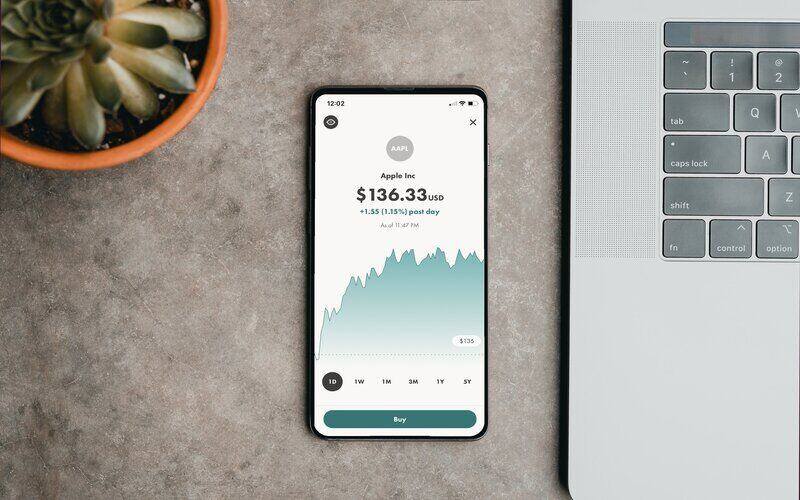If you’ve just started a new gig and need to take out a personal loan, you may find it difficult. Many lenders will require that you have been in a job for at least a few months before you apply. This is because they need to ensure you’re receiving regular income to manage your personal loan. Even if you’re earning more at your new job than you were at your old one, you can still be seen as a higher risk. But there are still some ways you could potentially secure a personal loan after starting a new job; you may just have fewer options.
Why does the length of your employment matter?
You may be wondering why it matters how long you’ve been employed. If I’m earning enough, why should it matter how long I’ve worked there? When you apply for a personal loan, the lender will assess your application to ensure that you can afford to repay the loan. They will look at your income, but not just the dollar figure.
Lenders need to ensure you have a consistent source of income so you won’t run into any trouble making your loan repayments.
-
Many lenders require you to be in your current job for at least two or three months before you apply.
This way, they can see how you manage your current income and expenses over a period of time, and whether you can add an extra expense on top of your current obligations.
However, there are still options available to you. Some lenders don’t have a strict requirement for the length of your employment - especially if you’re moving from one full time job to another with consistent pay throughout. For other lenders, a personal loan application where the borrower has just started a new job might be an insta-bin.
Before you apply for a personal loan, check the lender’s eligibility criteria. This will not only save you time but will also keep your credit history untouched, because applications for credit are generally recorded on your credit history - a knockback can be detrimental. If you’re not sure whether you’re eligible because of the length of your employment, reach out to the lender directly - its loan experts will know the answer.
How to strengthen your application
Regardless of whether your lender has a specific requirement or not, being a new employee and applying for a personal loan will likely put you at a disadvantage. However there are things you can do to strengthen your application to increase your chances of approval.
Meet all eligibility criteria
One of the most important things you’ll need to do when applying for a personal loan - whether you’re a new employee or not - is meet all of the lenders' eligibility criteria. While it can vary from lender to lender, standard personal loan requirements include:
-
Being at least 18 years old
-
Being an Australian citizen or permanent resident
-
Being able to demonstrate consistent income that can meet loan repayments
If you want to snag a decent interest rate, you’ll need to have a credit score that matches up. Your lender will also look at your bank statements to see your savings habits and your past financial behaviour - so be sure to demonstrate your trustworthiness as a borrower before you apply.
Get a letter from your employer
One of the biggest risks of being a new employee and applying for a loan is your job security. Often times, you’ll have a probationary period - a big risk for a lender. Probation periods vary but can be anywhere from a couple months to more than six.
You might want to consider getting a letter from your employer either stating you have no probationary period for your position, or giving you a glowing recommendation to put your lender’s mind at ease. Basically, let them know you don’t plan on leaving any time soon.
Apply for a secured loan
Having security on your loan can also reduce your risk to the lender. There are two main types of personal loans: secured loans and unsecured loans. A secured personal loan requires that an asset is offered as collateral, while unsecured loans don’t require this. If your lender has an added layer of security (literally), your risk as a borrower can be minimised.
Have a good credit history
As we mentioned, you’ll probably need a good credit score if you want a good interest rate on your loan. But having a good credit history can also increase your chances of being approved. This is because it demonstrates to the lender that you have been a responsible and reliable borrower in the past, and should be one in the future. Things that will improve your credit history include paying off debts on time, limiting the number of loans and credit cards in use, and also lowering credit card limits.
What are your other options?
Since applying for a personal loan as a new employee can be a bit riskier than normal, are there other avenues that may suit you better? There definitely could be but, of course, this will depend on what you’re planning on using your personal loan for. Let’s explore some of your other credit options that you could consider.
Credit card
A credit card could be easier to obtain than a personal loan - as long as you meet the eligibility criteria. You may still need to provide information about your past employment, and you’ll definitely need to inform them of your current gig.
A credit card could be easier to obtain, but keep in mind interest rates are likely much higher than with a secured personal loan, with some credit cards attracting interest rates of 18% p.a. or more. If you pay off your balance within the interest-free period, then no problem, but if you let it run loose you could face steep and spiralling repayments.
Buy now, pay later (BNPL)
Using BNPL might be a useful product if you’d rather pay off a purchase in instalments rather than regular repayments with interest like with a traditional loan product. Opening a BNPL account is generally pretty easy and the apps are user-friendly.
However, most BNPL services have a cap on how much you can spend which is significantly lower than most personal loans and credit cards. Also consider any monthly fees or late fees - when represented as a percentage figure spread out over the year, these fees could be comparable to a personal loan interest rate.
Wait it out, spend within your means
While an unsexy option, patience is a virtue. Either waiting to save money, or waiting until you’re in your job for longer can be beneficial. You don’t need to be in your job for years and years before you apply; just a few months is generally enough with most lenders.
Savings.com.au’s two cents
While you could potentially still secure a personal loan as a new employee, it’s important to make sure your lender is cool with it. Some lenders won’t care while others will - either way, it’s important to know who’s who in the personal loan zoo.
There are a number of personal loan providers in Australia, so if you’ve been a reliable borrower in the past and you’re able to service your new loan, you shouldn’t run into much trouble. Still be sure to do your research and know all your options before you submit your application.
In the market for a personal loan? The table below features unsecured personal loans with some of the lowest interest rates on the market.
Image by Alex Kotliarskyi on Unsplash






 Harrison Astbury
Harrison Astbury
 Harry O'Sullivan
Harry O'Sullivan

 Rachel Horan
Rachel Horan
 Jacob Cocciolone
Jacob Cocciolone
